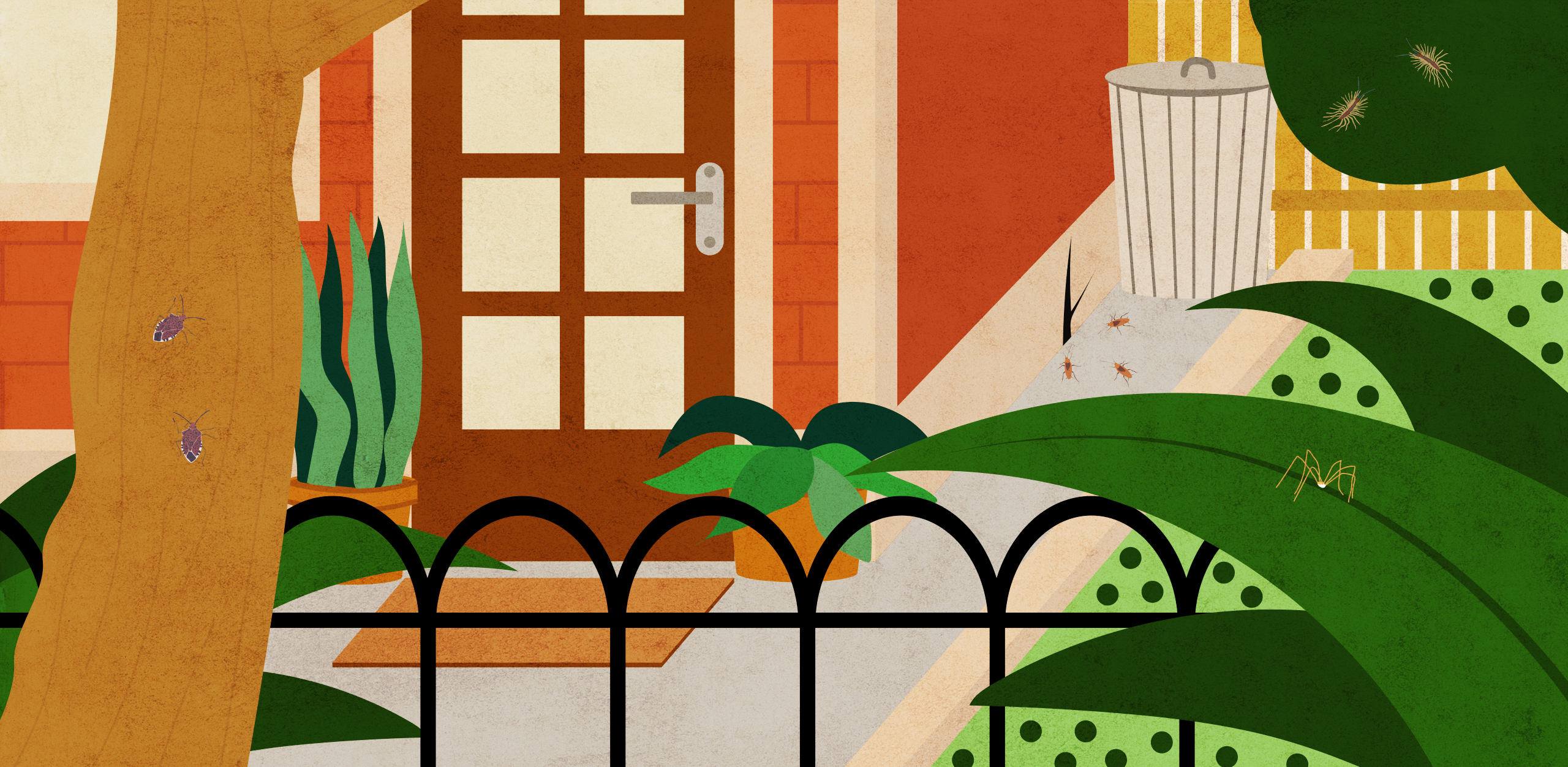home ownership
Good Bugs vs Bad Bugs: A Guide to Beneficial and Troublesome Insects in Your Home

No matter how fastidious you are, your house or apartment is probably home to a much larger variety of bugs than you imagine. But don’t call an exterminator, yet. Not all insects are as problematic as you may think. Some are actually beneficial! Use this guide to determine which of these little critters should be welcomed and which need to be removed.
Good Bugs
Silverfish These bugs have been with us since the Stone Age. They are generally found in bathrooms and like to make a meal of our dead skin. They squeeze into tiny cracks in walls and tiles, making them very hard to kill. They don’t carry diseases and are harmless, although they will cause damage to items like clothing, books, food, and wallpaper.
The Stink Bug emits a noxious odor if you step on it. Usually, they are found in gardens and sneak into homes in the winter where they hibernate until spring. Although they do not harm homes, they present a threat to gardens.
Centipedes are the bugs that make some of us jump up on chairs or run out of the house screaming. They generally come out at night, so we rarely see them, and they love to live in damp areas like basements and bathrooms. But before you evict them, remember they are great at killing other bugs, including carpet beetles, cockroaches, silverfish and spiders.
Cellar spiders spin webs in basements to catch their prey. They won’t bite you and, like centipedes, they gobble up many other household insects.
Weevils are actually beetles. Although they prefer gardens, they come inside during cold weather, hide behind walls, and chow down on nuts, seeds, and grains in your pantry. This is why you need to store all grain products in tightly sealed glass containers, not in cardboard boxes. Other than feasting on your groceries, they are not harmful.
Pill Bug This roly-poly critter isn’t even an insect — it’s a crustacean. It needs moisture to survive and are likely to be found in your basement. They can also be found in your organic composting, dining on your leftovers. Despite their creepy appearance, Pill Bugs are entirely harmless, except to spiders which they consider a gourmet treat.
Daddy Long Legs are also on the No-Kill list. Why? Because they feed on dead insects, including plant aphids.
Bad Bugs
Carpet Beetles are a nuisance. Like bed bugs, they are attracted to the carbon dioxide we exhale when we sleep, as well as to natural fibers like wool blankets, pillows, and upholstered furniture. They can be hiding in used carpets and upholstered furniture, as well as in condos and apartments that come carpeted. Although they don’t bite, they can cause allergic reactions that look just like bed bug bites via their prickly little hairs. They can also cause serious damage to your belongings, so it’s a good idea to call an exterminator.
Flies may seem a fact of life, especially in warmer weather when doors and windows are open. But the eggs they lay turn into maggots! Make sure your window screens are in good repair, devoid of rips or holes. The same goes for screen doors. Maggots can also invade your attic, crawl spaces or basement, especially if it is infested by raccoon, squirrels or birds.
Termites are beneficial if they do not enter the home. They can be found in backyards, gardens, parks, and in every forest. But once they get inside your home, they can do extensive damage including tunneling into the foundation of your house. Termites cost Americans more than $5 billion in damage each year and most insurance plans don’t cover the damage. At the first sign of termites, call a professional exterminator. Do not attempt to eradicate them yourself.
Mosquitoes feed on blood and transmit diseases from animals to humans. They may carry Malaria, Yellow Fever, Encephalitis, and West Nile Virus. Another reason to make sure your window and door screens are in good shape and always use mosquito repellent when visiting parks, beaches, lakes, ponds, and wooded areas. They love still water so make sure none is accumulating in your yard or bird bath.
Fire ants are known for their red-brown color and red hot sting. Some people are so allergic, their throats tighten and they cannot breathe. These nasty creatures migrate into homes through cracks in the foundation in search of food, and water during extreme heat or rain. If you get bitten at the Jersey Shore, it might be a fire ant, not a mosquito. If fire ants have entered your home, seal all cracks in the exterior and interior, then call a professional exterminator.
Bed bugs do not transmit diseases, but their bites can cause horrible itching. You will see their bites without ever seeing them because they are very small and fast, hiding behind your bed’s headboard or cracks in the floor. They can be found just about everywhere – in luxury hotels, Ubers, or theaters. Getting rid of them requires three or more visit from an exterminator and can cost $500 or more. It involves emptying closets and drawers in every room. Look for “green” exterminators who use products that will not harm you or your pets.
Cockroaches are common insect pests found everywhere, but especially in densely populated cities. They are very resourceful insects that can live, eat, and breed in your home without you knowing it. While they don’t bite, cockroaches can still cause health problems for some people with allergies or asthma. They can enter your home via cracks in the walls or simply hitch a ride on the backpack you take to the grocery store. To get rid of them, seal cracks in walls, repair plumbing leaks, sweep and vacuum floors, keep your stovetop clean, keep all edibles in sealed containers, and don’t leave pet food out at night.
We hope you have found this guide to help deal with the many uninvited creatures that could be bugging you as spring and summer approaches. Remember, there is always an environmentally healthy way to deal with insect infestations! If you are a solo tenant and encounter unwanted bugs, reach out to repairs@solorealty.com.






